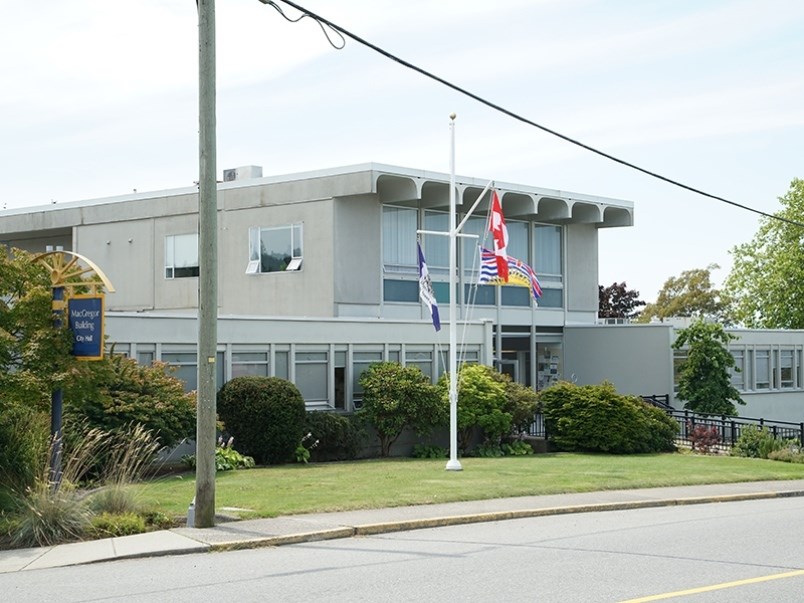After much planning, the possible name change joint working group, a collaborative Community Accord committee of City of Powell River and Tla’amin Nation elected officials and residents, is kicking off public engagement about the request from Tla’amin Nation for the City of Powell River to consider a name change.
A media release from the city and Tla’amin Nation states the concerns about the name Powell stem from Israel Powell’s time as superintendent of Indian affairs for British Columbia from 1872 to 1899, where he pursued policies meant to assimilate Indigenous peoples into Canadian society. The release stated this included the implementation of residential schools, banning of the potlatch, and removing ceremonial objects from communities. Powell also helped ensure that the sale of Lot 450, which included the tis’kwat village site, went through, the release stated. The impacts of these policies, such as loss of land, language, culture, and family ties for Tla’amin people, are still felt today, according to the media release.
The first engagement activities are the launch of a website and a survey (powellriver.ca/pnc). Paper copies of the survey are available at the Powell River Public Library, Powell River Recreation Complex, and city hall. The survey is open from March 1 to March 25. This spring, there will be a variety of public activities to continue sharing information about the history and identity of this place, and to be in conversation, the release stated.
Residents are also encouraged to write to the mayor and council with their viewpoints, including name and address, to [email protected], or by letter to city hall, according to the release.
Harmony Johnson sɛƛakəs, possible name change joint working group co-chair, vice president, Indigenous wellness and reconciliation with Providence Health Care, and Tla’amin Nation citizen, stated: “This truth-telling work is difficult for all of us. It is hard to talk and learn about these aspects of our shared history. I believe, however, that we can find positivity and meaning in this process by approaching this conversation with humility, kindness, and curiosity. We can all make a contribution to reconciliation in action by showing up as neighbours, willing to listen to and learn from one another.”
Stewart Alsgard, possible name change joint working group co-chair, former Mayor of Powell River, and city resident, stated: “I know from all my years here that people care deeply about this community and its history. I also know that people are committed to truth and reconciliation and finding a way forward with our Tla’amin neighbours. I invite people to take part in this process in order for us to build a positive future and move forward in a good way together."
The media release outlined what it termed key facts and clarifications. The first is that city council is the decision-making body. Council will consider recommendations from the joint working group, relations with Tla’amin Nation, and public input to decide how the city will proceed, or not proceed, with a name change, according to the release.
The release stated that no decision has been made on a possible name change yet. No name has been chosen (it doesn’t have to be tis’kwat). The language of the name has not been decided, according to the release, and right now the focus is not on choosing a new name –choosing a different name would be a separate process of public engagement with city residents and Tla’amin Nation.
The final point is that Israel Powell was not involved with the founding of the mill or the town and there is no record of him visiting Powell River, the release stated.



